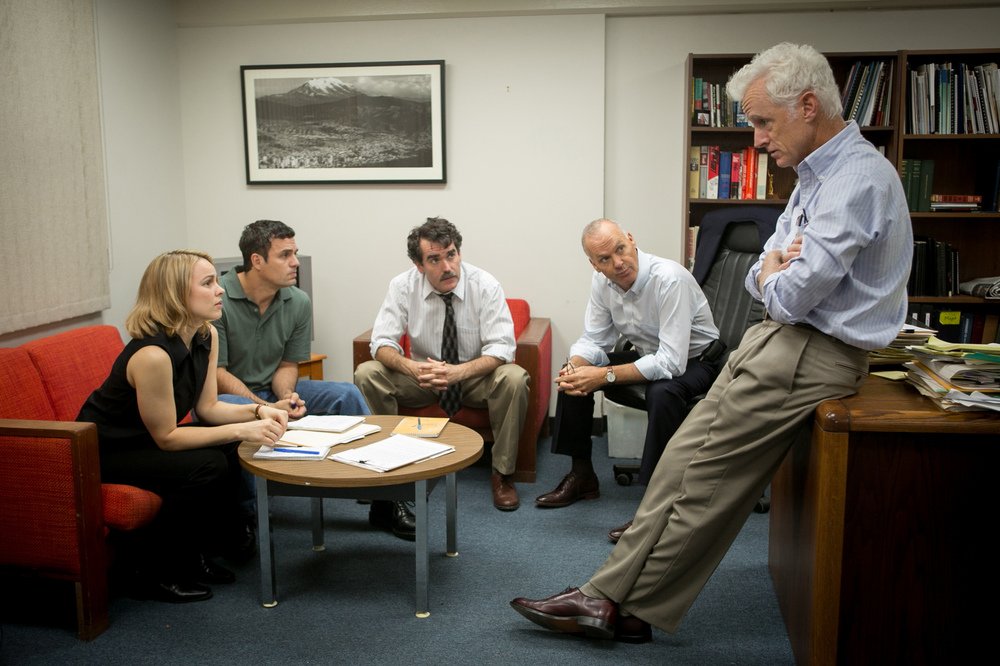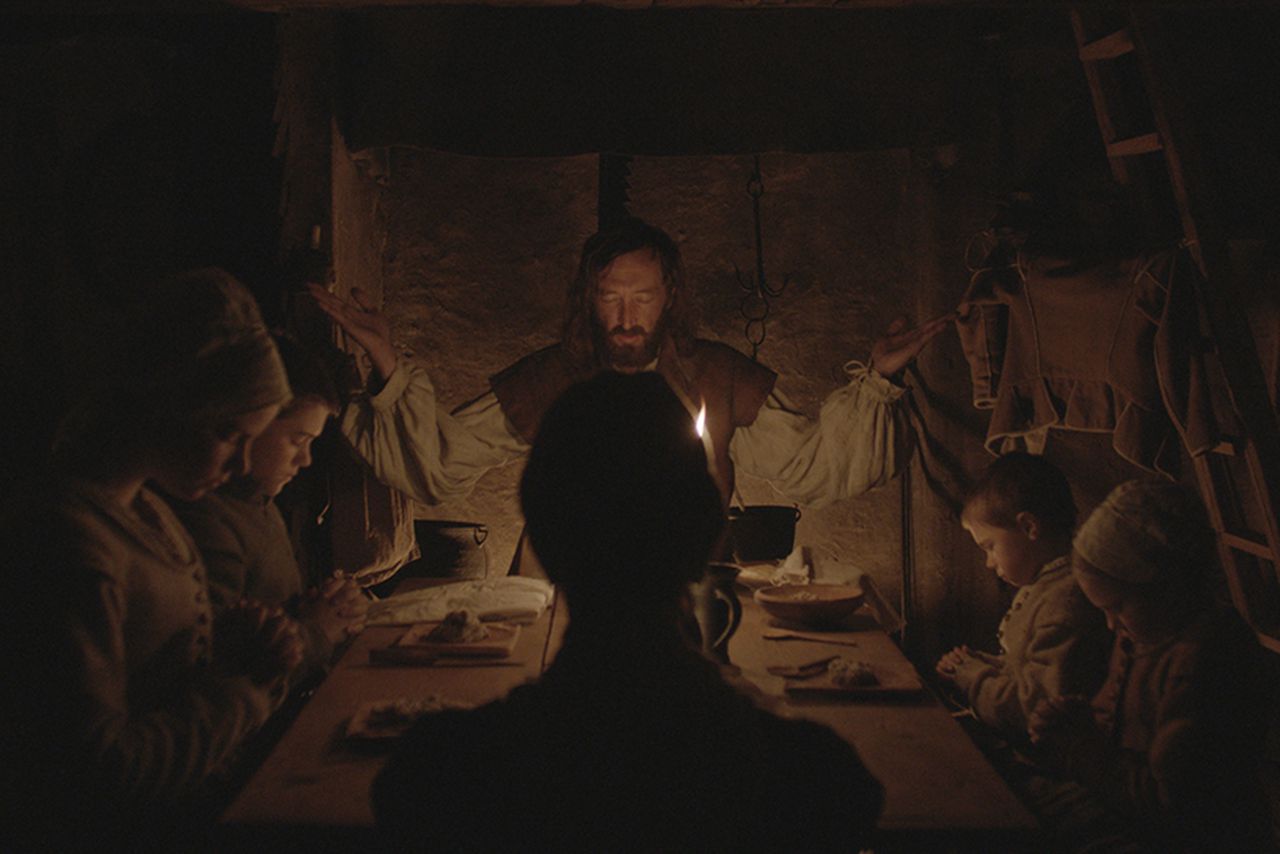The Best Advertisement for Journalism
 In the fifth season of The Wire (the worst of the five by general consensus, but also the most underrated), David Simon finally tackles head on the institution which is closest to his heart: print journalism. The Wire gives us good journalists and bad ones, with the former suffering because of idiotic decisions made at corporate level and the latter prospering. It's a fairly bleak depiction of the industry, though hardly surprising given Simon's own experiences as a journalist, as well as his singular drive towards what he calls "the audacity of despair." In The Wire, the failure of the journalists (even the good ones) is their remarkable ability to miss the stories that matter. The city of Baltimore is teeming with interesting characters who we have been following for several years. Yet when these characters die, for example, the story of their deaths is buried in some small section of the newspaper. The point Simon is making here - a point which not only applies to journalists, but to police, politicians etc - is that people are ignorant of their own cities. And not only that, but trapped in an ignorance that is self-perpetuating because it is willed. As Detective McNulty says of a former CI, he “saw the street like we wish we could.” In Spotlight, we are given a more hopeful depiction of print media - though not without a final mea culpa. The "street" in this instance is Boston, with the story centering around the sexual abuse suffered at the hands of clergy throughout the city, as well as the institutional cover-up. Indeed, it's perhaps even more the latter than the former. The film shows us good journalists doing good work - interviewing victims, gathering evidence, spotting corrupt practices, facing up to the powers that be. Though a sensational story, the film is not given to sensationalism. It is subdued and matter-of-fact almost to a fault. That said, the "fact" in question is sufficient of itself to evoke heartbreak and fury. How could something not only so horrific, but so widespread, so systematic, so known, have happened? Spotlight's line is that it takes a village (a city) to abuse a child. There is no one with clean hands, though some certainly have dirtier hands than others.
In the fifth season of The Wire (the worst of the five by general consensus, but also the most underrated), David Simon finally tackles head on the institution which is closest to his heart: print journalism. The Wire gives us good journalists and bad ones, with the former suffering because of idiotic decisions made at corporate level and the latter prospering. It's a fairly bleak depiction of the industry, though hardly surprising given Simon's own experiences as a journalist, as well as his singular drive towards what he calls "the audacity of despair." In The Wire, the failure of the journalists (even the good ones) is their remarkable ability to miss the stories that matter. The city of Baltimore is teeming with interesting characters who we have been following for several years. Yet when these characters die, for example, the story of their deaths is buried in some small section of the newspaper. The point Simon is making here - a point which not only applies to journalists, but to police, politicians etc - is that people are ignorant of their own cities. And not only that, but trapped in an ignorance that is self-perpetuating because it is willed. As Detective McNulty says of a former CI, he “saw the street like we wish we could.” In Spotlight, we are given a more hopeful depiction of print media - though not without a final mea culpa. The "street" in this instance is Boston, with the story centering around the sexual abuse suffered at the hands of clergy throughout the city, as well as the institutional cover-up. Indeed, it's perhaps even more the latter than the former. The film shows us good journalists doing good work - interviewing victims, gathering evidence, spotting corrupt practices, facing up to the powers that be. Though a sensational story, the film is not given to sensationalism. It is subdued and matter-of-fact almost to a fault. That said, the "fact" in question is sufficient of itself to evoke heartbreak and fury. How could something not only so horrific, but so widespread, so systematic, so known, have happened? Spotlight's line is that it takes a village (a city) to abuse a child. There is no one with clean hands, though some certainly have dirtier hands than others.Best Sequel to a Movie That Was Quoted to Death During My Teenage Years
Best Poor Man’s Heat
| "Remind me why agreed to do this movie?" |
Best Neologism
 |
| GB: "Get out of this franchise while you still can, Aaron! I'll cover for ya." AE: "But how are you gonna get out?" GB: "....." |
Best Horror
I am about as much an authority on horror films as David Cameron on Aston Villa. So take this award with a pinch of salt. The Witch is more or less the only horror movie I've ever seen. And truth be told, it's not a quintessential horror movie. There are no real jumps to be had, no moments of impending fright, other than when you discover that Finchy is playing the lead role. This is a film that builds slowly and menacingly to a dramatic finale. The story is simple: a family in 17th century New England is banished from their Puritan plantation, and set up home near the woods. What follows is the unraveling of all certitudes, and the exposure of and to the evil which they have heard about with their ears (it is learned from the great Confessions) but which they now see with their eyes. This was a contender for my film of the year. It is certainly the only flawless film I've seen in the past twelve months. Once you've seen it, it is impossible to shake it off. It exposes you to a darkness you would rather not contemplate, but which you are forced into contemplating (fair to say it's more a Lenten film than a Christmas film, though Herod's massacre might suggest otherwise). As Evgeny Morozov once remarked, evil was not eradicated with the invention of the iPhone. That said, for better or worse those who lived before the iPhone were perhaps more aware of it. Does that mean that the iPhone is the devil's greatest trick? Possibly, but what is certain is that you would be missing a devil's trick if you don't see this movie. Highly recommended, as it used to say in the RTE guide.
Least Worst Comic Book Film
There are no longer any "best" comic book films. Only comic films which aren't quite as bad as other comic book films. After the double whammy of The Avengers and Man of Steel I made a solemn oath never to see a comic book movie in the cinema again. For a couple of years I was true to my word. But possessing an Unlimited card makes a man do things he can never undo. One of those things was my trip to see Batman v Superman: Dawn of Justice. My expectations were rock bottom, yet still I was disappointed (though mostly I was just bored and angry). The first quarter of the film flirts with intelligence. It tries to deal with the fact that these films almost inevitably end up in mass destruction which goes unaccounted for. In this case, the Superman of Man of Steel (played with all the charisma of a cardboard box by Henry Cavill) is shown to have paid no regard to the fortune of Bruce Wayne as he and Zod knocked lumps out of each other. Wayne is pissed, and he's looking for any excuse to take down Supes.
There's even some mildly interesting political commentary on Superman vs Liberal Democracy, But all of that goes out the window once Jesse Eisenberg's Lex Luthor gets going. Coincidence? I think not. There is an attempt at a kind of pseudo-Nietzschean theme, as well as an attempt at theodicy (can Superman be omnibenevolent and omnipotent?). To put on my theologian's hat for a second, the problem with these attempts is that, contrary to the view of popular atheists (Ireland's friendly racist Ian O'Doherty, for example), God is not thought to be something like an alien (as Terry Eagleton puts it, God plus the universe does not make two). And for Christians, God becomes man, not Übermensch. But all of this is rather beside the point. The real problem with this film is that it's not actually a film at all. It is a two and a half hour advertisement for future films/advertisements. If there are any god-like figures at work here, it's the studio executives intent on creating a cinematic universe, or rather, the Mammon which has them grovelling at its feet and willing to do anything to appease it. 2019's Plastic Man may end up being the film of the decade. But I'll be damned before I go to see it.
 |
| A metaphor: Oscar Isaac is comic book movies, Jennifer Lawrence is the film industry |


No comments:
Post a Comment